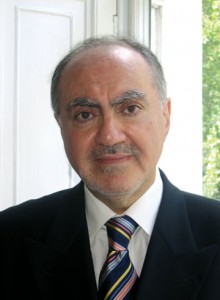- 10 Dec 2013
THE SECOND WAVE OF MODERN ISLAM: REVIVAL OR RUINATION
Abstract:
The centuries-old cycle of the encounter of Muslims with a world that is not of their making is coming to an end. It began in defiance, adjustment and promise and is ending in confusion, strife and despair. The rise and fall of the “Islamic Alternative” parallels in many ways the pattern of the demise of the communist experiment where an ideational response to the raw capitalism of the 19th century culminated in revolution, mass opposition parties, failed collectivist experiments in reordering society and finally the denouement of 1989. The trajectory of modernist Islam that began with the great reformers of the latter part of the 19th century has come to a shattering stop with the Arab Spring of 2010-2012.
However, overshadowed by the tumult of events are the outlines of a new order that is slowly coming into focus. It will profoundly affect the lives and prospects for the world’s Muslims. For what we are witnessing is nothing less than an end of a historical epoch, entailing a deep shift in Muslims’ perspectives and consciousness.
The end of historical epochs are not always peaceful or produce benign outcomes. The long cycle that began over a hundred and fifty years ago with the reformist Islam of Syed Ahmad Khan, Afghani and Abduh and passed through the genesis of Islamic parties, the revolution in Iran and the rise of jihadist movements is ending in a particularly violent and dangerous way. It has left indelible changes in Muslim societies and individuals. But the galloping fragmentation of the world of Islam-into sectarian conflicts, secular/Islamist divisions and the specter of the extreme violence of jihadi groups- is now putting at serious risk the elemental unity of Muslims. How the Islamic world will navigate these violent currents will determine the shape and direction of the next long term cycle in the evolution of Islam in the contemporary world.
About the Speakers

Ali A. Allawi is a writer, biographer and former government minister in Iraq. He received his education at the Massachusetts Institute of Technology and at Harvard University. He served in the World Bank group for a number of years before founding his own investment firm. Following the changes in Iraq in 2003, he served as the Minister of Trade, and then the first civilian Minister of Defence. In 2005 he was elected to the Constituent Assembly of Iraq and then served as Minister of Finance. In 2007, he left public service to pursue scholarly and academic interests.
He has authored four books including The Occupation of Iraq (Yale: 2007) and The Crisis of Islamic Civilisation (Yale: 2009). His book Faisal I of Iraq will be issued in February 2014 (Yale). It will be the first comprehensive biography of this seminal figure set against the formative years of the fall of the Ottoman Empire and the founding of the state system in the Middle East. At various times, Ali Allawi has been associated with Oxford University (Senior Associate Member); University of Exeter (Fellow); Princeton University (Fellow); and Harvard University (Fellow). He has made numerous media appearances, and his articles and essays have appeared in major international journals and newspapers. He is the recipient of several public policy and diplomacy awards, and his books have garnered prizes. He is currently working on a book on the economic history of the modern Arab/Islamic Worlds.




